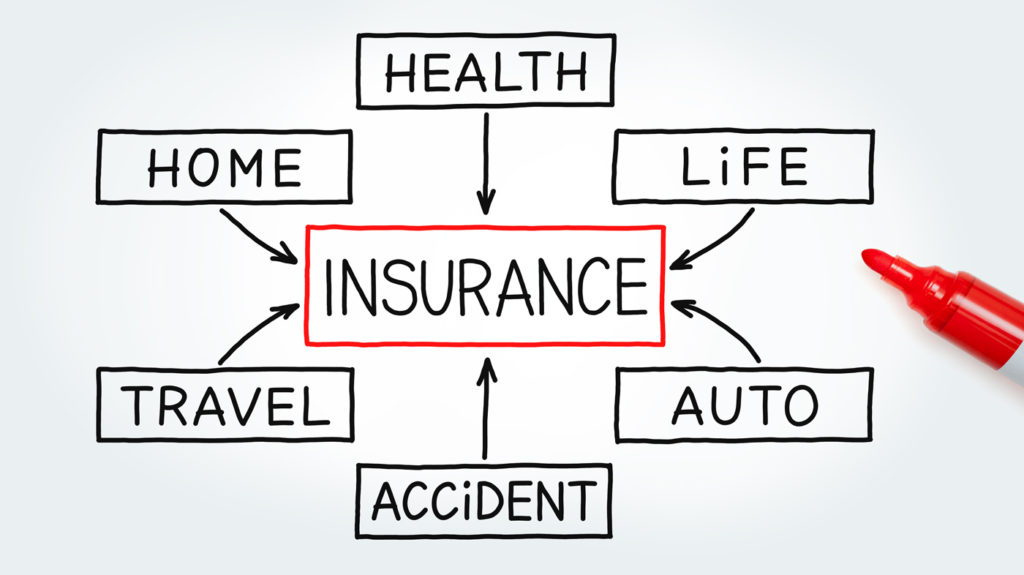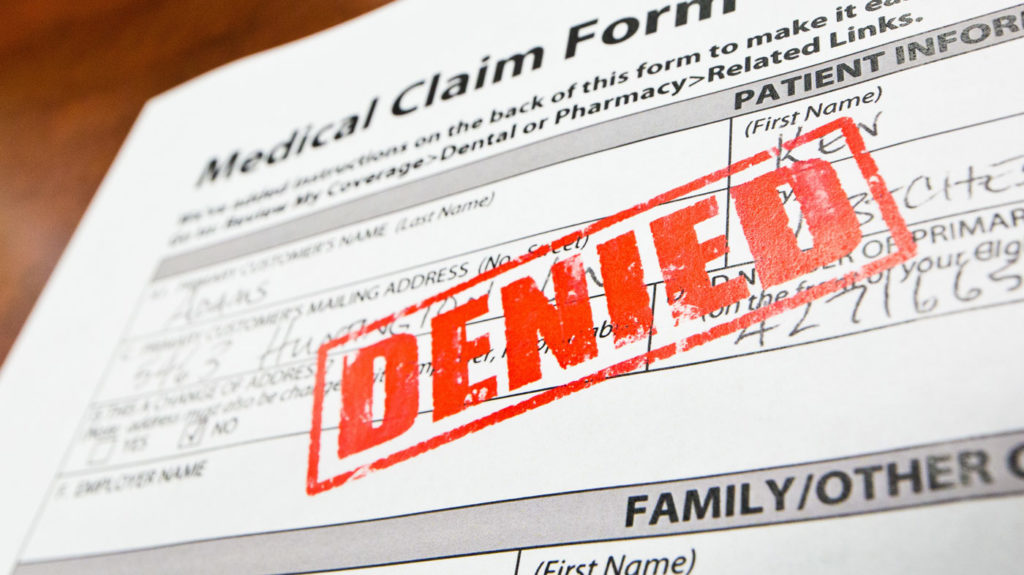Know the Basics of Insurance and How It Works
Do you ever wonder: What’s insurance and how does it really work? You may not be alone. Insurance is a complex topic and many may be unaware of its basics. To get started, you should know that an insurance policy is similar to a contract between a policyholder and an insurer. The contract is agreed to in advance in case the policyholder suffers a specific type of loss — say, a vehicle collision, an injury or a burglary.
If the event named in the policy happens, the insurer agrees to cover the financial cost of the loss. Such costs are usually too large for one individual to cover, so insurance is a handy way to protect yourself from unforeseen financial distress.
What Kinds of Insurance?

That’s a weird question to answer, really, because you can get just about anything insured. Rolling Stones guitarist Keith Richards once insured his hands for $1.6 million, while Bruce Springsteen stands to receive $5.7 million from an insurance policy should his voice ever fail him.
For most people, there are chiefly four types of insurance: auto, property, life and health.
Auto Insurance
Car insurance is required if you drive a vehicle. These policies can cover everything auto-related, from paying for repairs to a damaged car after an accident to bodily injury to a bystander or passenger to covering for legal defense costs if you end up in a vehicle-related lawsuit.
Property Insurance
As the name suggests, this insurance covers the loss of property in case of an accident or crime. This can come in many forms. Homeowners insurance, for example, covers a person’s home and belongings in case of accidents, natural disasters or crime. Homeowners insurance is so important that it’s mandatory if you take out a mortgage to buy a house, because a lender will require the asset to be insured in case anything happens to it.
Of course, a renter’s belongings can be just as crucial, so having a renters insurance policy can be just as important if you don’t own your own home. Like a homeowners policy, renters insurance covers your property in case it is damaged by certain events. Both homeowners and renters insurance also can cover you against personal liability if someone is hurt at your home.
Other types of property insurance exist for smaller items, too. When you buy a smartphone, for instance, you could purchase an optional insurance policy for it in case it is damaged, lost or stolen. The same is true for most large electronics you can buy nowadays.
Life Insurance
Some employers offer life insurance as a perk. If a policyholder passes away, the life insurance policy then assists those that person left behind by helping account for burial costs, replace lost income and pay any remaining debts of the deceased. Many people choose to buy their own life insurance policy in addition to what the employer offers either to add more coverage or to have the protection independent from their employment status.
Health Insurance
Health insurance pays for medical treatment in case of serious illness or injury. Many employers offer health insurance as a benefit to their employees. Other people buy policies directly from insurers or on marketplaces set up by the government. Supplementary types of health-related insurance exist, such as vision insurance for eye care or dental insurance for oral treatments. And there’s pet insurance, a variant of health insurance for your furry family members, often covering illnesses, injuries and other emergencies.
How Do I Pay for Insurance?

The price you pay for insurance is called a premium. It can be paid at once or on regular payments. Smaller policies, such as ones for your phone or electronics, are usually paid for with a one-time fee when you buy the device. Many insurance policies are paid for through regular payments over the time frame of your policy.
Essentially, you pay the premium in exchange for a larger lump sum that your policy would cover in case of emergency.
How much you pay for insurance depends on a risk-based calculation. For example, having a good driving record, favorable credit rating or vehicle less likely to be stolen — among other factors — may reduce the cost of your car insurance. A history of accidents, on the other hand, will raise risk and, consequently, the cost of your insurance.
Homeowners insurance works in a similar way; added security features may help lower your premium, while your insurance premium may increase if you have an older house that it’s more susceptible to damage.
How you pay your premiums also varies based on your insurance type. Car insurance premiums usually are paid in monthly installments. In the case of homeowners insurance, the premium can be built into your mortgage payment; no additional payment is often necessary. If you get your health insurance through work, many employers usually just deduct the cost of your premium from your monthly paycheck, while some others pay for the entire cost of employees’ insurance as a benefit.
What Kind of Coverage Will I Get?

Again, the answer to this question depends on what kind of insurance you have. When you buy auto insurance, for example, you can choose which coverages to include in your policy beyond the coverages required by state law. In addition to basic coverages that will help you financially if your car is lost or damaged or if you injure another person, you might opt to add coverages that will reimburse you for the cost of renting a car or roadside assistance. Adding coverages, of course, means that the insurance company is taking on more risk, so expect a higher premium.
Coverages can vary in other types of insurance as well. In the case of health insurance, a standard policy might cover certain hospital bills or prescription drugs within a certain network of health care providers. You, however, could shop for a policy that also includes mental health benefits or allows for more financial coverage outside of that provider network. Homeowners, on the other hand, might opt for additional coverage for floods or volcanoes if their home is within a high-risk area of such calamities.

Exclusions? What Do You Mean?
There are certain things that insurance policies just won’t cover. These are called exclusions, and just about every form of insurance might have them. Standard homeowners insurance policies, for example, outline certain emergencies that they specifically will not cover, such as costs from any construction required to bring your house up to code. Life insurance policies may have exclusions that won’t pay if the policyholder dies from suicide, illegal acts or dangerous activities.
Your health insurance might exclude treatments given by an alternative healer or injuries sustained in an organized sport or a car accident. Whatever insurance you have, make sure you understand the exclusions in your coverage. It’s important to fully understand them so you’re not left without coverage during an emergency you thought you might be protected against. In some cases, exclusions can be remedied by seeking additional coverages, so the more you know, the more you can protect yourself.
What is a Deductible?

Some insurance policies — auto, home and health policies, in particular — come with a deductible. A deductible is the amount you agree to pay toward the cost of a claim before your insurance foots the rest of the bill. If your car insurance policy has a $1,000 deductible, for example, you’ll pay the first $1,000 in repair costs. Your insurance company covers the remaining amount up to the policy limit.
The deductible in an auto insurance policy usually applies to each of your comprehensive and collision coverages. Say your car is damaged after a wreck, or a tree falls on it. You’d pay your deductible toward repairs, and your insurance company would take care of the rest of the bill.
Homeowners insurance’s deductibles work the same way. Some policyholders choose a set dollar amount of deductible when choosing a policy, while others choose a percentage of the cost of the home. Say, for example, you buy a policy for a $300,000 house. A 1% deductible for that policy would require the homeowner to cover $3,000 of the cost whenever they file a claim.
Health insurance deductibles are a little different. While car and home insurance deductibles are often per claim — that is, you pay your deductible every time you file a claim — medical deductibles often apply over the course of a year’s worth of coverage. If you spend $300 of your $1,000 medical deductible, you’d still have $700 of it left before the insurance company begins to cover the rest.
In addition, not everything included in your health insurance plan might involve your deductible. Many plans cover preventive visits to a primary care physician even before the deductible is met — but again, check your coverage to make sure you know what you’re covered for.
Finally, it’s important to note the relationship between your deductible and your premiums. Generally, the lower your deductible, the higher your premiums. You’ll pay more upfront, but your policy would protect you more financially if it kicks in. It’s up to you to decide whether the short-term savings in premium payments is worth the risk of paying more later if an emergency occurs.
– Written by Arnie Aurellano, last updated in January 2023.

